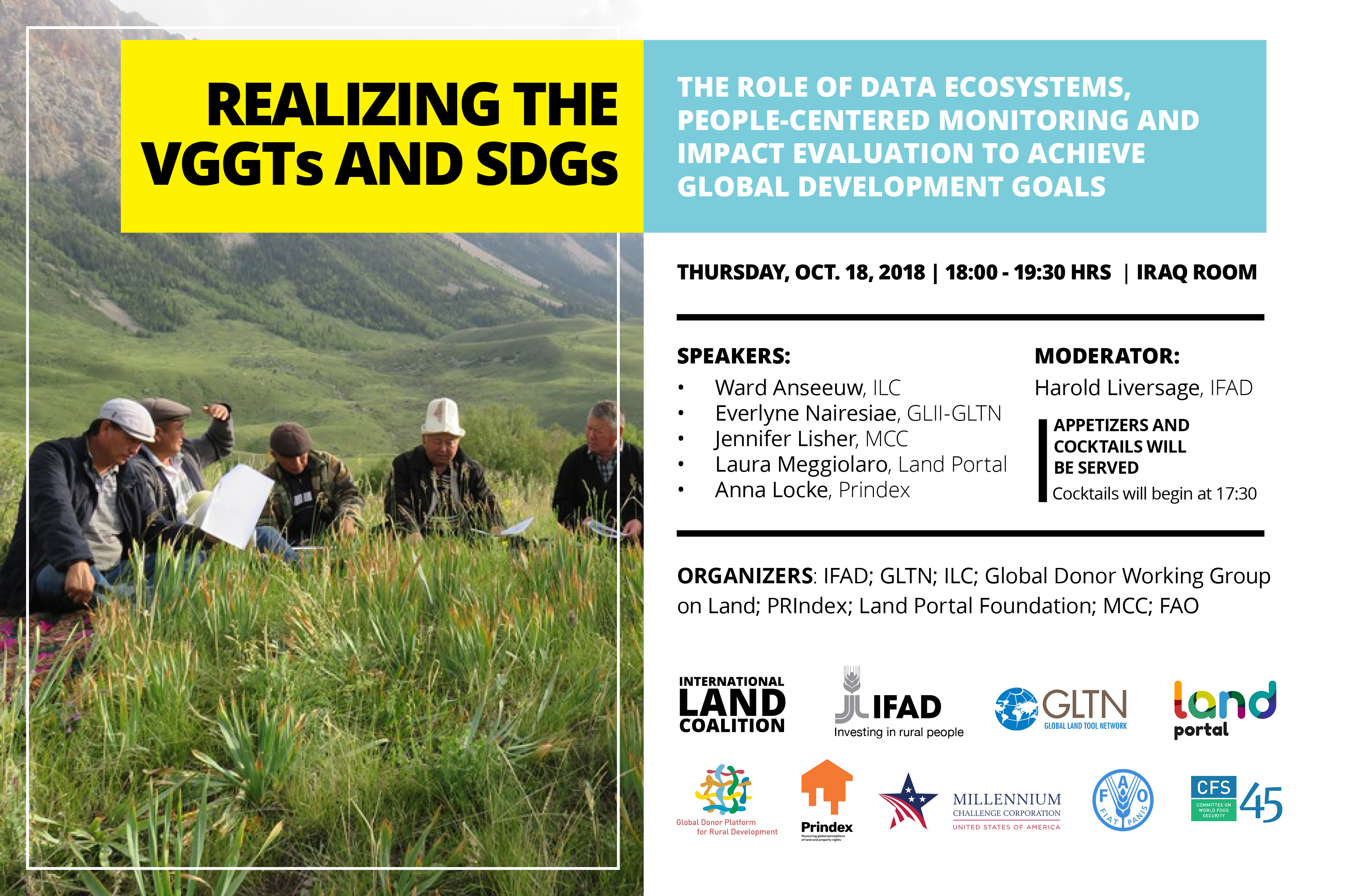In 2017, the fifth anniversary of the landmark Voluntary Guidelines on the Responsible Governance of Tenure (VGGTs) highlighted successful integration of VGGT principles into national law and decision-making processes across several countries. The uptake of the Guidelines has steadily grown in the past five years, aided by the development of tools and resources and further supported by an umbrella programme at FAO that has carried these processes forward in 60 countries.
The notion of land governance as fundamental to development gained further traction in late 2017, when three priority land indicators – 1.4.2, 5.a.1, 5.a.2 – were promoted to Tier II within the Sustainable Development Goals (SDGs). The reclassification signaled that a clear methodology had been established and that data collection was underway. Their inclusion in Agenda 2030 marked a significant step towards the recognition of tenure security as inseparable from several of the overarching SDGs.
While global frameworks such as the VGGTs and SDGs have established clear objectives towards improved land governance, questions of how to monitor progress towards these goals and evaluate the impact of related interventions remain unanswered. The VGGTs call on States to establish multi-stakeholder platforms that would monitor implementation, while the SDGs include a clear mandate for data collection to provide "high-quality, timely, and reliable data" that reflect local contexts.
Responding to this call, the last five years have seen a range of monitoring and data generation initiatives and tools blossom. Initiatives such as PRIndex, the ILC Dashboard, ActionAid’s VGGT Assessment Toolkit, the Land Portal database on VGGT-related information, as well as the GLTN-IFAD guide to Impact Evaluation of Land Tenure and Land Governance are generating people-centered data that, alongside custodian-driven partnerships with NSOs, offer nuance and depth to an evolving picture of local land governance in the context of global frameworks.
Building on this momentum, the current moment provides an opportunity to further reflect on the role of datasets and monitoring framework that can complement one another, adding nuance and complexity to debates on local land governance.
This panel will reflect on the significance of these initiatives and how they are positioned to provide important insights into challenges on progress towards improved land governance in context. The debate will offer a critical reflection on the role of the growing ecosystem of data and how to further improve collaboration among actors, make people-centered data and monitoring tools more accessible, and further democratize the ecosystems of data surrounding the VGGTs and SDGs.
Location of the event: Iraq Room, FAO Headquarters, Rome
Time: Cocktail begins at 17:30. The event takes place from 18:00-19:30.
Moderator: Harold Liversage, International Fund for Agricultural Development (IFAD)
Panelists:
- Ward Anseeuw, International Land Coalition (ILC)
- Everlyne Nairesiae, Global Land Tool Network (GLTN) - GLII
- Jennifer Lischer, Millennium Challenge Corporation (MCC)
- Anna Locke, PRIndex
The format for this Side Event is an interactive and dynamic talk show, with the goal of generating lively discussion between panelists and the audience. It will include short presentations to monitoring and evaluation initiatives related to the VGGTs and SDGs (15m), followed by a facilitated discussion on the promises, challenges, and lessons learned from current initiatives (30m). After an initial round of questions, the floor will be open from audience questions (45m).

